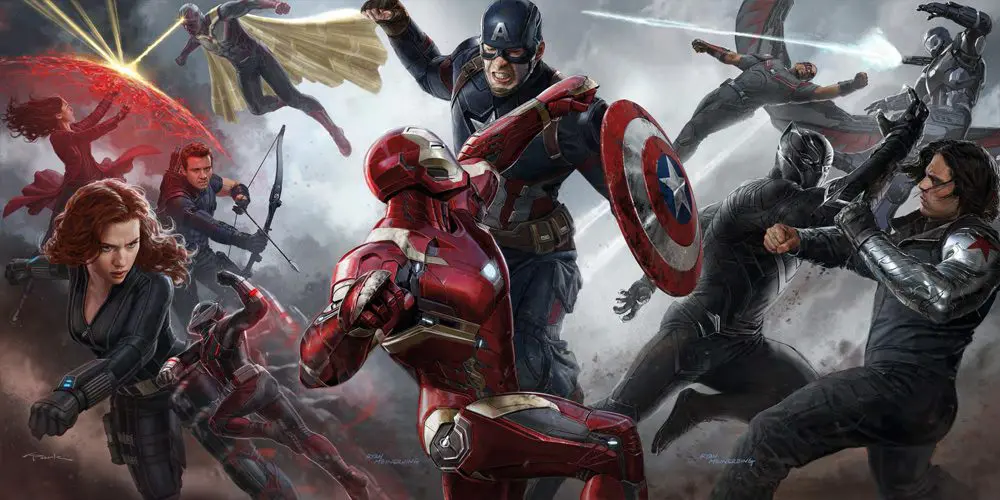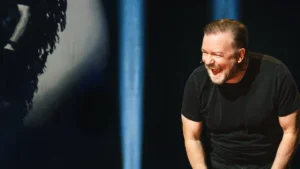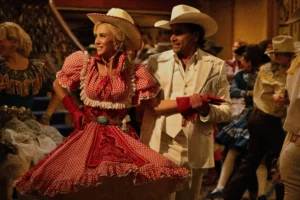Captain America: Civil War is the sequel to 2011’s Captain America: The First Avenger and 2014’s Captain America: The Winter Soldier. The premise of the film is that the government fear that the actions of the Avengers are causing more harm than good, despite the Avengers saving millions of lives at the detriment of few innocent lives. As you can note from previous Marvel films, the heroes have had a part to play in destructive damage and possible hurt to others.
Due to public pressure, the government decides to push for the Hero Registration Act, a law that limits superhero’s actions. The film is interesting for the fans because Iron Man stands with this act, but Captain America feels that saving the world is daring enough and that they cannot rely on the government to protect civilization. This provides the making of a war between Captain America and Iron Man and the film pushes the audience to choose. Whilst Iron Man stays relatively the same as a character, you witness a different side to Captain America that you will have never seen before unless you have read the comics.
In various moments, you question whether this is a Captain America, Iron Man or even an Avengers story. In the previous films, Captain America is the lead character in the storyline, but with the amount of characters thrown into the narrative you sometimes forget who holds the title. The film at times feels overcrowded with superheroes, with all of them trying to fit in at least one scene. You could argue that this is understandable, so it feels like a legitimate war between both characters with their own team to battle with.
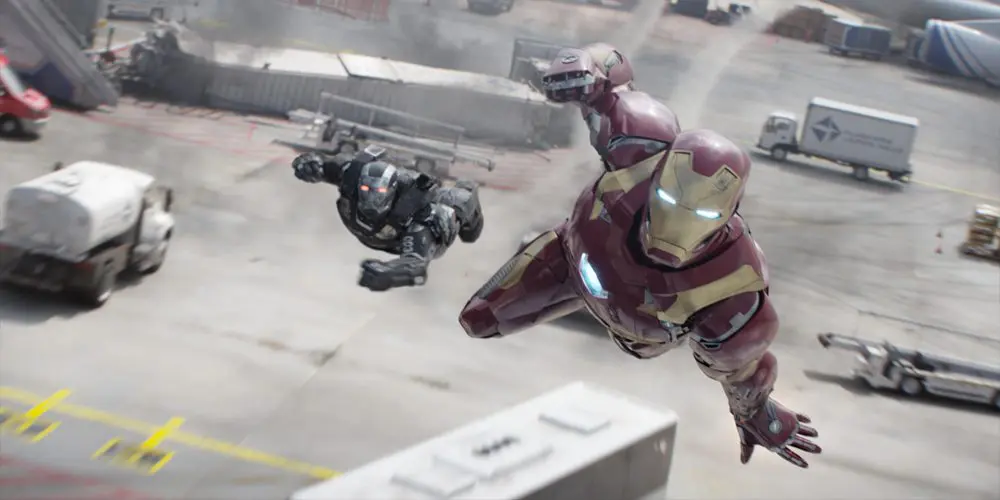
It is a shame that Spider-Man is revealed in the trailers because you still feel surprised when he joins the crowd. A part of you hopes that this Spider-Man actually sticks around as the re-introduction of the character is getting boring. Tom Holland’s Spider-Man feels like a good match and you do wonder if Marvel Studios have got more in store for him. Chris Evans and Robert Downey Jr obviously get the most limelight in this story but you have to acknowledge again Scarlett Johansson’s contribution to the Marvel Universe which is why I think it is unfortunate that a Black Widow film has not come sooner. Apart from that, the other characters just blend in, and although it feels slightly overcrowded the film just about gets away with it because as an audience member you feel excited by and invested in each character. The film nearly represents the “too many cooks” adage, and sometimes you are left questioning whether this is an advertisement for future films. It has to be noted, however, that what Marvel Studios have managed to do well in comparison to the DC films is that they have managed to develop each character independently and introduce them in crossover movies with no narrative complication.
I enjoyed the concept of this film because it tackled the issue of power and consequence. In previous films, you have always questioned how so much destruction can apparently cause no loss of any innocent life. It raises the question as to whether saving lives can sometimes be principally flawed. Parts of the film mirror the society that we live in, whereby by a group of people with power can cause more problems than seems worthwhile. The film, in an underlying way, references what right a powerful entity has to enter a foreign land. And this serves as a metaphor because they actually use the word foreign, and are in effect American getting involved in international issues without the jurisdiction. You could easily read into this too much, however it provides a fascinating storyline. Team Iron Man supports one principle and Team Captain America supports another, and who you support really depends on your own principles. Do you support what is right or do you support the greater good? This concept, and the way the film pushes it, makes this instalment of Captain America my favourite one so far.
My issue with previous Captain America and Marvel films is that sometimes they offer a lot of fun and laughter but they do not offer enough depth. The narrative in this film shows that there are repercussions to having so much power and that you cannot just get away with essentially being a worldwide vigilante. The characters look troubled, and because you have watched the previous films, you can almost sense how tired they are; how their battle scars are finally getting to them.
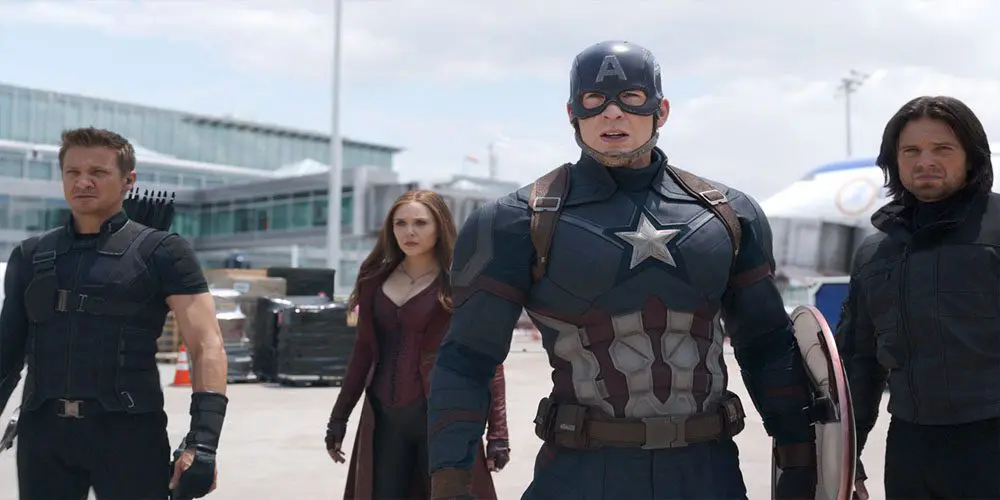
There are negatives to this film and it is not perfect. For instance, you sometimes forget the main villain, and at times it feels disjointed because you are focusing on so many different elements. One second you are focusing on Iron Man, the next Captain America, and then on their teams, with the introduction of new characters, then focus moves back onto the villain. Within all this it switches locations a lot and you sometimes wonder what the purpose of this story is. Captain America vs. Iron Man? Or both vs. the main villain? You could argue that they could have gotten away with not having a villain, and just having Captain America vs Iron Man, but I guess having the villain present provides an objective for both characters.
By the third act, you sense that the film is a bit too long and it could have easily been 20 minutes shorter, but as with all Marvel films, this provides a climactic ending in the final act which allows you to re-engage back into story.
Captain America: Civil War is fun and it keeps you gripped until the end. I said when this film came out that they need to leave this set of characters alone for now, and I believe eventually they will with the introduction of other characters. However, this film has convinced me that another Captain America and/or Avengers film is perfectly feasible.

